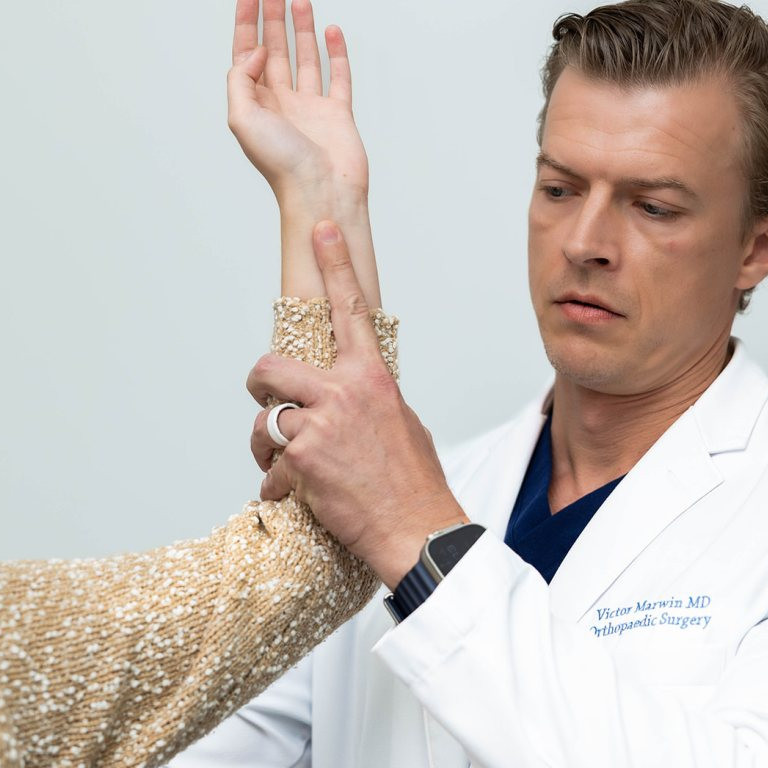When to see an elbow specialist
Mild soreness may improve with rest and over-the-counter medication. But if pain lingers, limits your movement, or keeps coming back, it may be time to see an elbow specialist. Early care can prevent small issues from becoming bigger problems down the road, so it is important to know what to look for.
You may benefit from seeing an elbow specialist if you notice:
- Pain or tenderness on the inside or outside of the elbow.
- Stiffness
- Swelling around the joint
- Tingling or numbness radiating down the forearm into the hand
- Difficulty and pain when trying to fully extend your arm
- A clicking or popping sound when moving your elbow
- Pain that worsens with repetitive movements
- Radiating pain from the shoulder to the elbow
- Ongoing pain from a sports related problem
Having any of the symptoms above may indicate one of the following common elbow problems or injuries:
- Tennis Elbow
- Golfers Elbow
- Elbow Bursitis
- Arthritis
- Stress Fracture
- Fracture
- Tendonitis
- Cubital Tunnel Syndrome
- Ligament Injuries
The elbow is a complex joint, and different issues can cause similar symptoms. That’s why a proper evaluation by an elbow specialist is so important.








